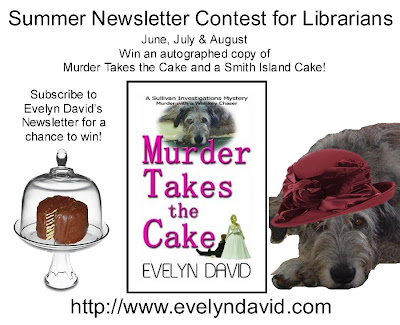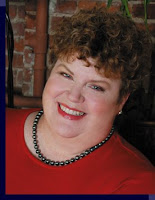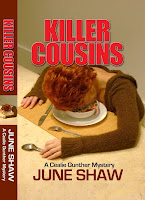Ah, the Joys of Home Work
My husband thinks I’m so lucky. As a full-time writer, I work at home, which means I don’t have to fight rush-hour traffic in the morning or change out of my pajamas until noon. He’s jealous, too, that the cats can hang out in my office, their furry lengths draped across my lap or my desk. Only there are drawbacks to being a work-at-homer, kind of along the lines of “anything too good to be true usually is.”
Like when you realize your home is your office so there’s no leaving work at work. I’m envious that Ed gets to put being a software engineering team manager out of his head once he drives out of the company lot. Once he’s kicking back on the sofa in front of the widescreen, he’s ready to chill (unless it’s the weekend, and the list of chores on the fridge is making him cross-eyed).
When I’m on deadline for a first draft, revisions, copy-edits, whatever, my work is constantly calling to me, 24/7. I don’t get to turn it off, shift “job” to another part of my brain, and relax. I know that everytime I walk upstairs past my office, there’s more to be done. So I frequently find myself saying, “I just need to write for a bit,” and I’ll disappear for hours. It’s no wonder I sometimes forget what day of the week it is since I’m often at the keyboard pounding away even on weekends.
Oh, yeah, and there’s that lovely side effect of home-as-office which awards the lucky work-at-homer the opportunity to wait on and (for lack of a better word) supervise every repairman and delivery. So, let’s say, when it’s time for an AC check and the dude “will arrive sometime between eight and noon” or the new dishwasher is coming “anytime next Thursday,” yep, yours truly gets to meet-and-greet. It’s hard to write when someone’s installing an appliance, which entails a good amount of banging noises and switching off of electrical circuits. I can’t seem to get deeply into a scene when a stranger in my house keeps calling, “Ma’am?” from downstairs. Even on no-repairman days, there are always loads of laundry, vacuuming, mopping, trips to the grocery store and bank, and other miscellaneous chores that fall to me. I do try to squeeze in the treadmill occassionally, too, even if it’s the middle of the afternoon. More often than not, the doorbell rings right after I’ve stepped out of the shower, and it’s the UPS guy. I’ve actually signed for packages with a towel wrapped around my middle and one hastily wound around my dripping head. (Well, like that old Wells Fargo Wagon song from “Music Man,” it might be somethin’ special just for me! Most recently, it was hot-off-the-press copies of LOVE, LIES, AND TEXAS DIPS…Oooo!!!)
the opportunity to wait on and (for lack of a better word) supervise every repairman and delivery. So, let’s say, when it’s time for an AC check and the dude “will arrive sometime between eight and noon” or the new dishwasher is coming “anytime next Thursday,” yep, yours truly gets to meet-and-greet. It’s hard to write when someone’s installing an appliance, which entails a good amount of banging noises and switching off of electrical circuits. I can’t seem to get deeply into a scene when a stranger in my house keeps calling, “Ma’am?” from downstairs. Even on no-repairman days, there are always loads of laundry, vacuuming, mopping, trips to the grocery store and bank, and other miscellaneous chores that fall to me. I do try to squeeze in the treadmill occassionally, too, even if it’s the middle of the afternoon. More often than not, the doorbell rings right after I’ve stepped out of the shower, and it’s the UPS guy. I’ve actually signed for packages with a towel wrapped around my middle and one hastily wound around my dripping head. (Well, like that old Wells Fargo Wagon song from “Music Man,” it might be somethin’ special just for me! Most recently, it was hot-off-the-press copies of LOVE, LIES, AND TEXAS DIPS…Oooo!!!)
As for our cats sweetly purring in my lap as I type…ha! That’s only in my husband’s wild imagination. Usually, they’re chasing each other around the house, howling and spitting as they fling themselves atop my desk and swat at each other, knocking papers to the floor and often stepping on various keys on my keyboard. Once Munch plopped down on t he “Enter” key and suddenly a 10-page chapter turned into hundreds of blank pages. This weekend, Max hopped up and clicked the mouse with his paw, sending an email I was writing in reply to a blogger doing a contest for one of my books…before I’d half-finished it. Thanks, Maxwell.
he “Enter” key and suddenly a 10-page chapter turned into hundreds of blank pages. This weekend, Max hopped up and clicked the mouse with his paw, sending an email I was writing in reply to a blogger doing a contest for one of my books…before I’d half-finished it. Thanks, Maxwell.
It’s a wonder anything ever gets done. Speaking of which, excuse me a minute while I dump another load in the washing machine, throw some clothes in the dryer, and let the plumber in. I have a feeling Munch and Max will attempt some very interesting revisions for me while I’m gone.
**************
EXCITING NEWS: My second Debs novel, LOVE, LIES, AND TEXAS DIPS, will be released on June 9. I’m giving away five copies on my web site so drop by and enter!







